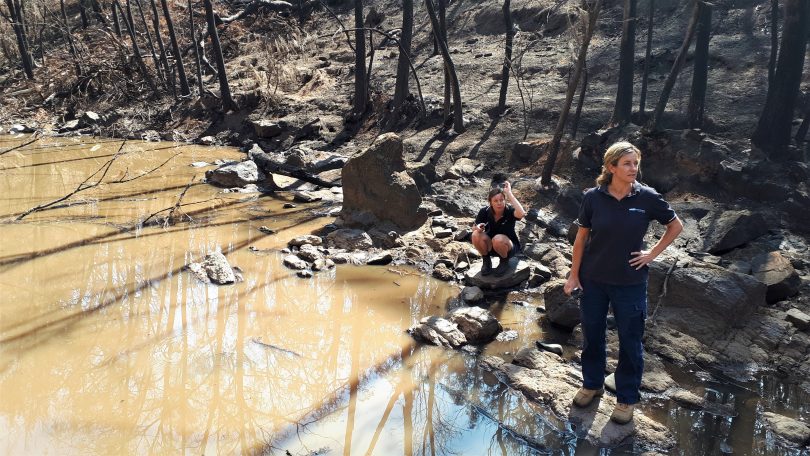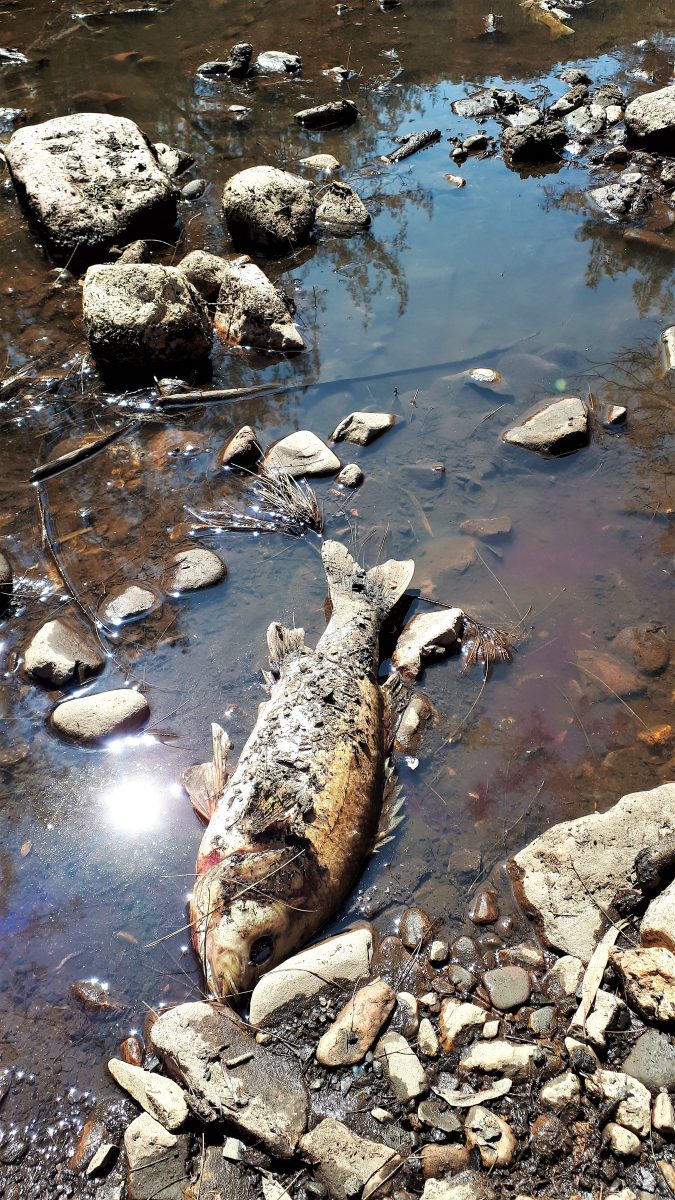
Eurobodalla Council’s Landcare coordinator Emma Patyus and natural resources supervisor Heidi Thomson along the burnt-out bank of the Deua River. Photo: Supplied.
Even before the rains began washing ash and silt into waterways this weekend, native fish had been badly affected by drought and fire.
The Eurobodalla Shire Council reports that mass fish deaths have recently been recorded at Tilba Lake, Whittakers Creek and the Deua River, with the combined effects of drought and bushfire to blame.
Combined with low water levels and poor flow, during a fire the water in creeks and small pools can become so hot the fish are killed by heat exposure.
The council anticipates that this week’s heavy rainfalls will leave native fish populations struggling even more, as burnt areas with bare soil are likely to erode quickly, washing tonnes of blackened sediment into waterways.
Manager of environmental services Deb Lenson said the council will monitor water quality in local estuaries and has been working with South East Local Land Services to install sediment and erosion control to help protect the shire’s waterways.
“After the fire has passed, ash and sediment falls or is washed by rain into waterways. The water becomes murky and there may be a sudden drop in oxygen when bacteria feeding on the influx of organic matter proliferate,” Ms Lensen said.

Australian bass were found dead during a recent survey of bushfire impact on the Deua River. Photo: Supplied.
“We’re seeking funding under the NSW Government’s Bushfire Affected Coastal Waterways program to implement immediate measures which help protect water quality and coastal ecosystems.
“In turn, this assists our tourism and aquaculture industries. We’ll also be seeking technical and financial support for longer-term help for our waterways. The task has only just begun as our native flora and fauna will need a lot of help.”
The council’s director of infrastructure services and local emergency management officer Warren Sharpe said heavy rain will impact all of the shire’s waterways.
“We’ll see ash, sediment and debris from fire-affected areas running into our creeks, rivers and the ocean,” Mr Sharpe said.
“In normal circumstances we say don’t swim for three days after heavy rain. But the burnt landscape means we expect water quality to be poor for longer. If the beach looks murky, please don’t swim in it.”
Mr Sharpe said Eurobodalla’s level 4 water restrictions will remain in place after the rain.
“Our rivers have received a much-needed boost with the rain and we’ll start pumping as soon as we can but refilling the dam takes time, and the length of time we can continue to pump will depend on the extent of rain in the upper catchment,” he said.
Residents and visitors can help the shire’s native fish by keeping an eye on local waterways and reporting any gasping fish or mass fish deaths to the Department of Primary Industries’ Fishers Watch phone line on 1800 043 536.
Original Article published by Elka Wood on About Regional.












